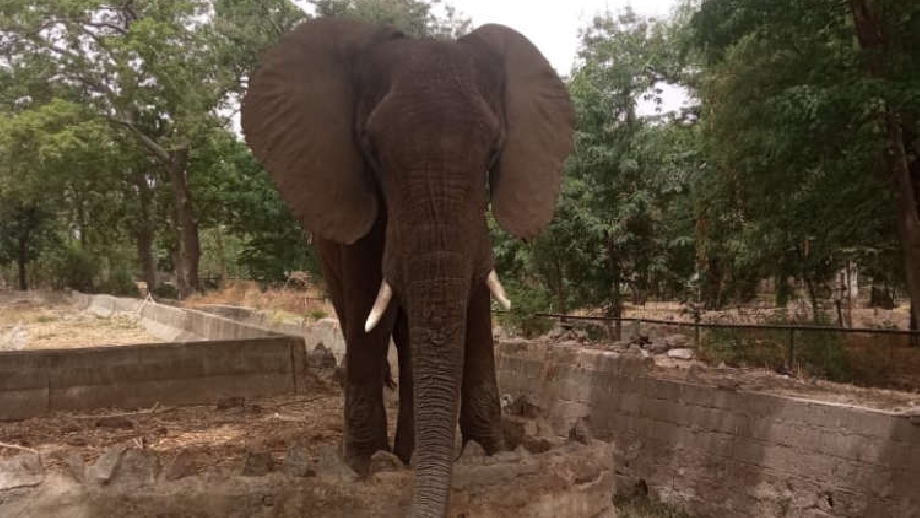
Unless there is a major festivity in town, the nearly 52-year-old Kano zoological garden is as quiet as a sleeping boar with few fun seekers and singing birds.
One of Nigeria and Africa’s most populous zoos is further becoming unattractive with some animals unavailable for sightseeing due to an increase in poaching and financial constraints.
Thousands of people would ordinarily troop into the zoo, but only a few visitors were sighted the weekend before Sallah festivities, even with the low N200 gate fee.
First-timers, regular visitors, and Kano city residents lamented the poor condition of the 53-hectare ancient zoological garden.
“This place is not clean enough! If it’s not a festive season like this, they’ll just abandon it like nothing exists here,” said Deborah.
“The drainage in the zoo is not being taken care of. The trees around the zoo are of advantage to people living around but some are now dying because of lack of water,” Isa Abubakar, a resident around Zoo Road, complained.
A first-timer observed the lack of shelter for people to stay.
“I have no place to sit down with my family. They wanted to eat but we have no shelter.”
“The environment is okay. The only problem is just the maintenance culture,” Peter Kpanaki, another visitor said.
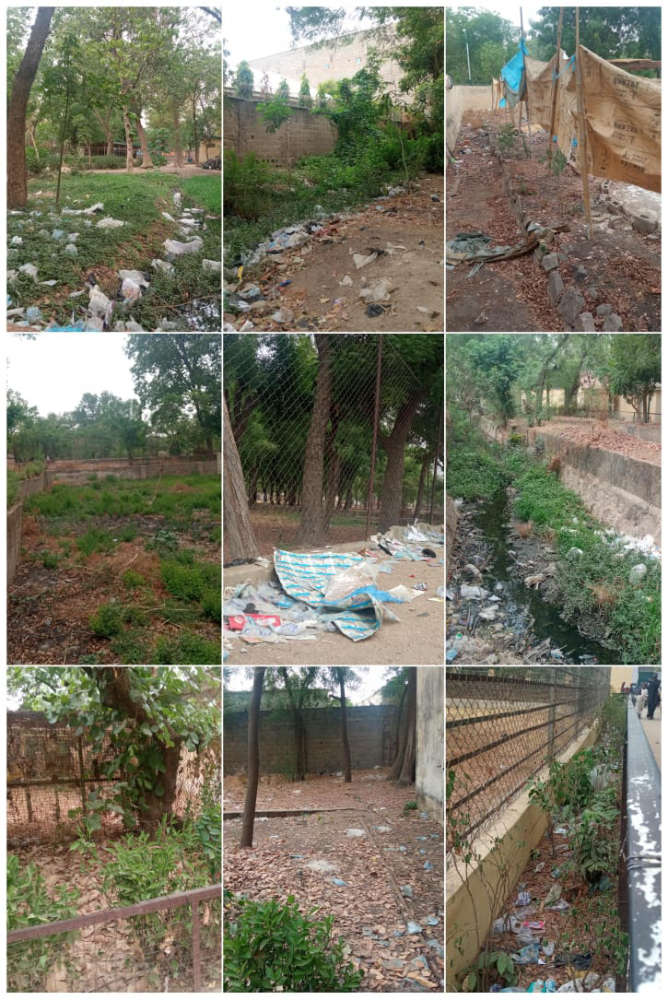
Photo: Unkempt zoo environment
Traders doing business within the zoo vicinity complain of low sales when there are no major festivities due to low patronage.
The name tags describing the animals in the cage have either faded off or are covered by weed, while the zoo looks unkempt.
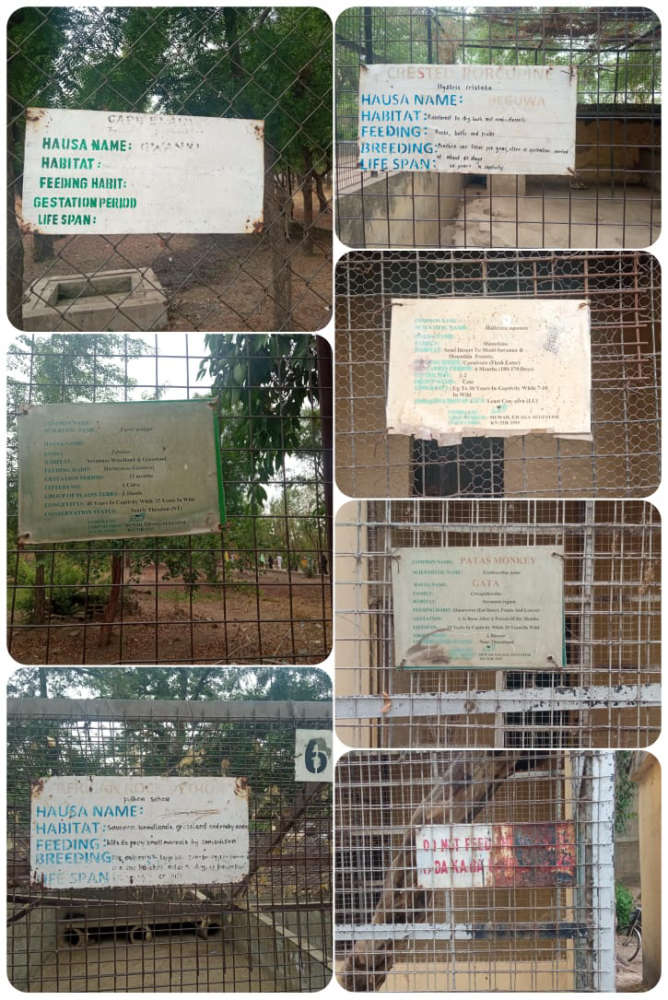
Photo: Faded name tags on cages in Kano Zoo
Feeding of animals by outsiders is prohibited but the rule is clearly violated as some almajiris feed non-edibles like flip flops, leather, and rubber to the ostriches in the zoo.
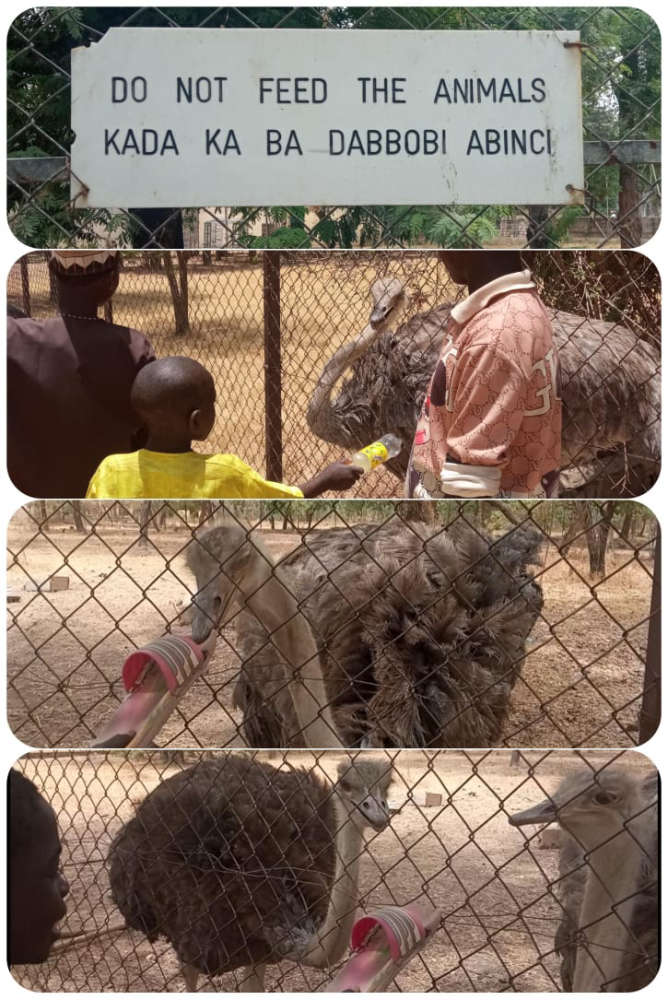
Photo: Almajiris feeding non-edibles to animals in Kano Zoo
The zoological garden was established by the former military leader, Audu Bako, in 1971 and several government attempts to relocate it to Tiga town have been resisted by the people.
It is the only zoo in Nigeria recognised as a zoo after approval by the Pan-African Association of Zoos which is a subsidiary of the World Association of Zoos.
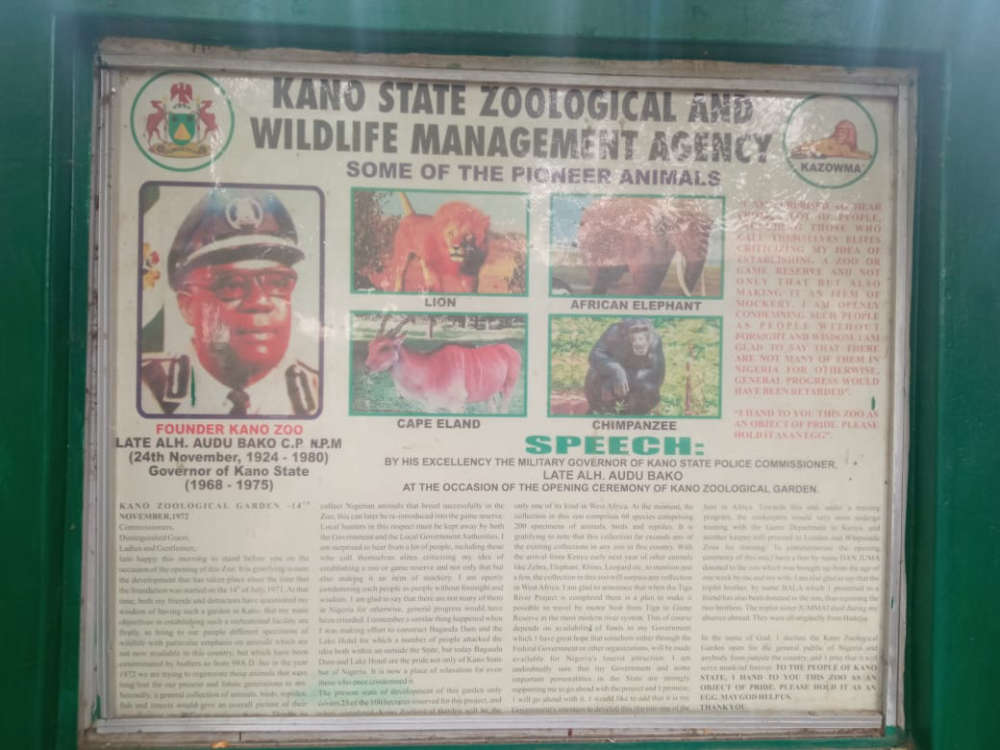
Photo: Board showing Audu Bako and pioneer animals
Lack of Manpower and Finance Crippling Zoo -MD
The Managing Director of Kano Zoological and Wildlife Management Agency, Lawan Jinjiri Kurmawa, blames the lack of manpower and finances for the state of the zoo.
“The challenge we are facing is the shortage of manpower. It takes the zoo backward because there are some areas where we need working experience but some of the staff are just laborers," he said.
“Secondly, in the last three to four years, the government gives us a small amount of funds to run Kano Zoo,” He added.
He links the unavailability of some animals at the zoo to the high rate of hunting and killing of wild animals by hunters.
“It is very difficult to get the animals because they are all scarce. Some of the animals are already gone because of the high pressure of hunting.
“Even if you have the money, you’ll have to go to South or East Africa before you get the animals,” Kurmawa said.
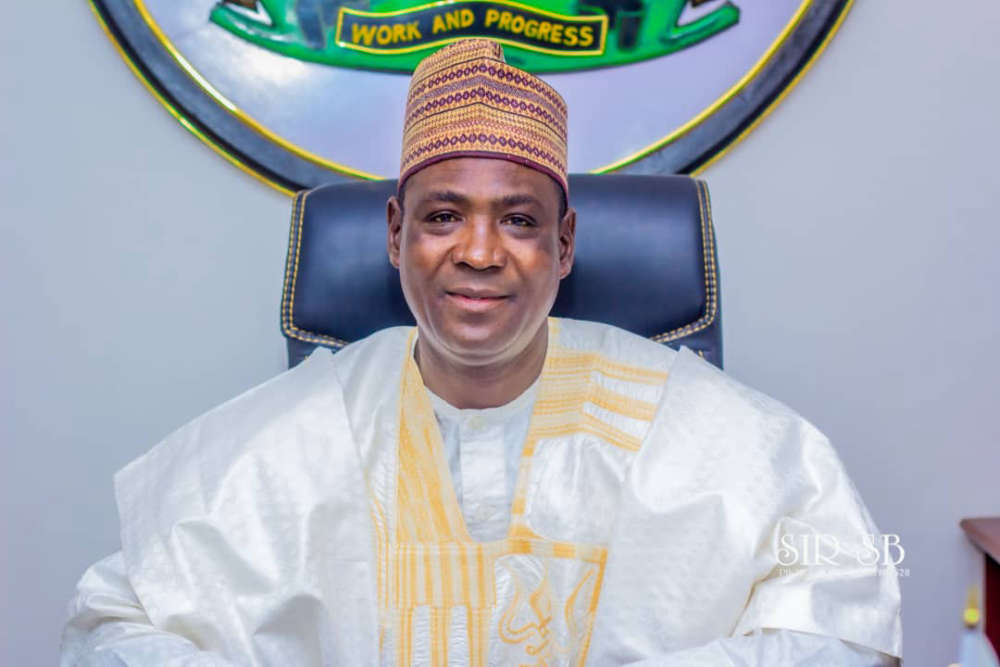
Photo: Lawan Jinjiri Kurmawa, MD, Kano Zoological Garden
Ministries Disown Zoo
I visited the Kano State Tourism Board in a bid to track the government ministry or agency in charge of the zoo but was referred to the Ministry of Agriculture.
The agriculture ministry equally disowned the zoo with a claim that it was handed over to the tourism board in 2019. The zoo's future appears to be hanging in the balance with the disownment by the tourism board and the agriculture ministry.
Expert Recommends Proper Funding for Zoo
A professor of Geography at Bayero University, Kano (BUK) is strongly against the relocation of the zoo.
Prof. Yusuf Adamu is, however, urging the incoming government of Kano State to prioritize proper funding of the zoo.
“We want to advise the incoming government to ensure the supervising ministry is up and doing and the management of the zoo is doing what they are supposed to do,” he said.
Adamu opines that the zoo will attract tourists and be a major source of revenue for the government if properly managed.


